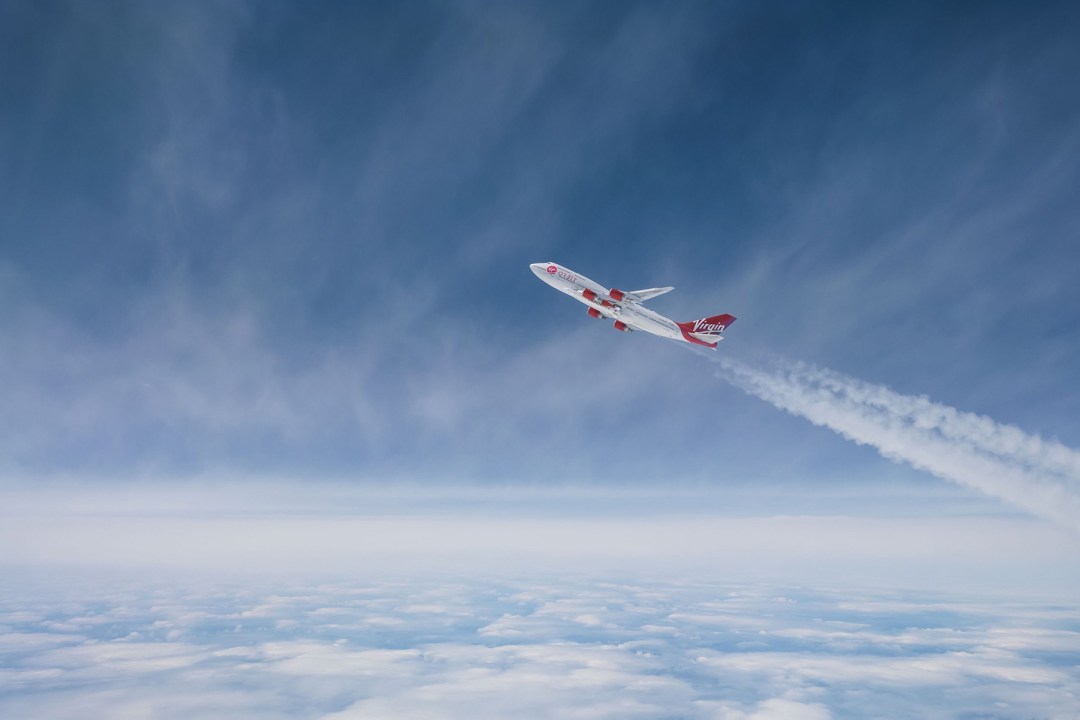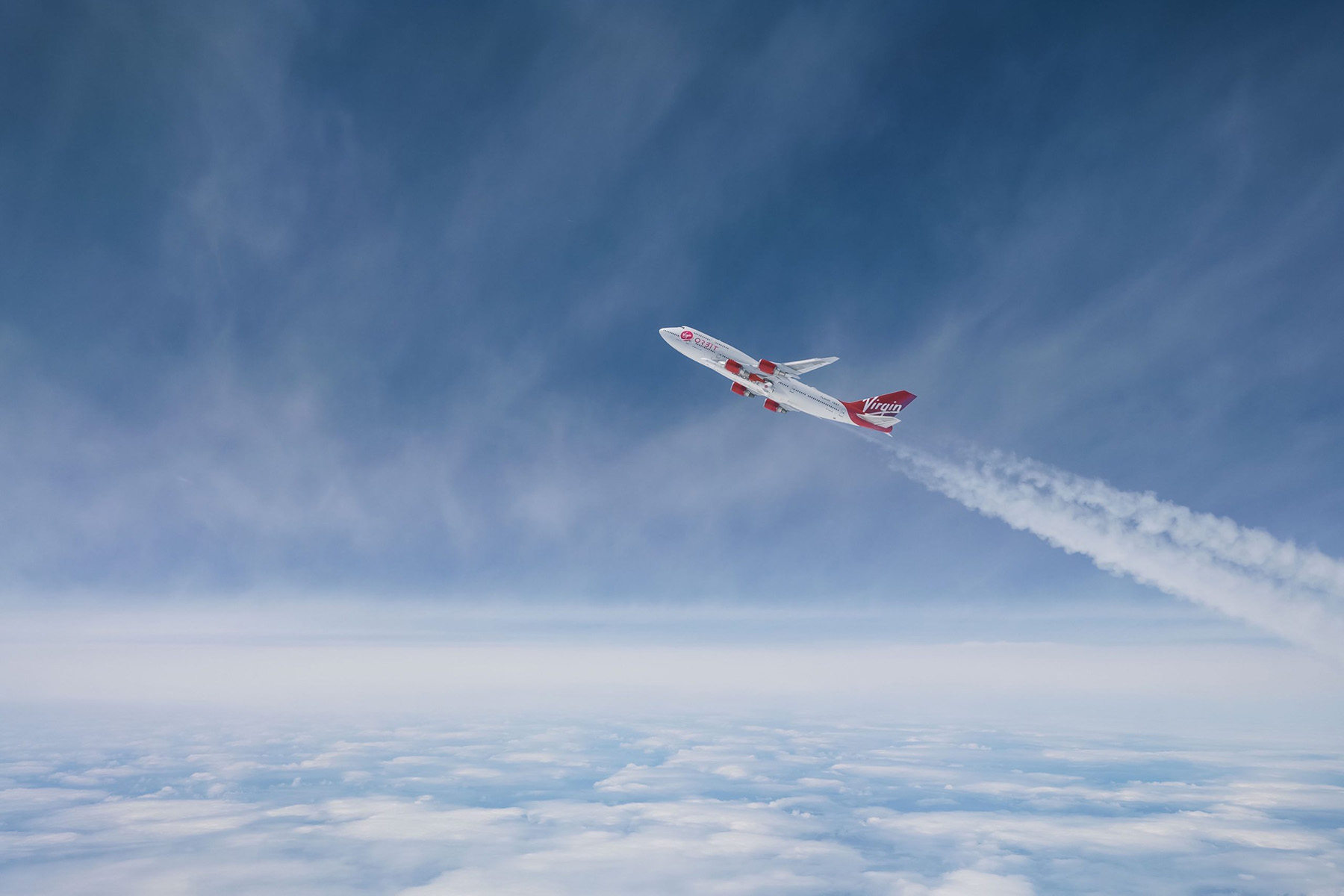The attempted launch of a rocket via a Boeing 747 from Spaceport Cornwall – the first such attempt in Europe – was not a giant leap so much as a giant plunge. While the plane took off and landed successfully, the rocket released from beneath its wing at 35,000 feet crashed and burned, taking with it the nine satellites it was supposed to launch into orbit.
There is a lesson for the government in what happened at Spaceport Cornwall this week
It is easy to imagine Vladimir Putin chortling at the news that Britain has failed to do something the USSR managed 66 years ago. Satellite launches have become routine, with 14,000 put into space since the Soviet Union’s first Sputnik in 1957. Yet this week’s disaster should not be allowed to detract from what is otherwise a highly successful UK space industry. While Britain has yet to launch a satellite, it is a world leader in designing and manufacturing them, and this less visible aspect of the space industry should be celebrated.
UK companies are also involved in the development of equipment on the James Webb telescope, now delivering the most advanced images from outer space, and a roving vehicle which it is hoped will be exploring the surface of Mars in a Nasa mission later this decade. The launch of a rocket attracts crowds, especially when Richard Branson’s PR machine is involved, but few are even aware of the 47,000 people who work directly for Britain’s space industry or the many more involved in the supply chain. What’s more, it is a fast-growing business, with revenues up 50 per cent to £17 billion in the past decade.
All this is to be admired. It is a sign that Britain is finally leaving behind its tendency to invent things and then stand back as other companies develop them and make the profits. Many of these projects have been developed in universities, the work of scientists and engineers who in the past might have taken their ideas to California. Now we have a business-friendly environment which is helping to nurture technological startups.
But there is a lesson for the government in what happened in Cornwall this week. Spaceport Cornwall is a joint venture between Cornwall County Council, the UK Space Agency, Virgin Orbit and others – and it is part-funded by £20 million of government money. As has happened so often in the past with state-backed ventures, public money has been sucked into the most prestigious, visible end of an industry, with too few in government asking whether that is really where the best business opportunities lie. It is easy to see the attraction for ministers keen to be photographed alongside rockets. The spaceport has attracted publicity for Cornwall, too, allowing the county council to portray it as being about more than just tourism.
Yet Britain’s space industry does not need to launch rockets in order to be successful. It only makes sense to develop our own launching facilities if we have confidence in being able to do the job better or more cheaply than the opposition. Satellites designed and manufactured here can easily be launched in the US, where they have been up until now.
The case for Spaceport Cornwall is that it might offer a more bespoke service for owners of satellites who might otherwise have to wait to hitch a lift on large satellite launches. But that will come to nothing if the technology involved in launching from an aeroplane has a significant failure rate – something which seems to have been anticipated in the business case put to the UK Space Agency. It is early days, of course – hopefully the flaw in this week’s mission can be identified and the venture will prove to be a success. But it would be very unfortunate if the government turns out to have let itself be led up a blind alley as a result of excessive enthusiasm for a prestige project.
This has, after all, happened many times before. The industries promoted, or bailed out, by government have tended to be those which generate the loudest headlines and the best photo opportunities. There was plenty of money for Concorde, whose economics turned out to be flawed, and for 30 years politicians of every stripe threw money at British Leyland (later the Rover Group) seemingly in the belief that Britain had to have its own native car industry, though many of the products were poor and the company ended up failing. The same tendency has been obvious throughout the saga of HS2, where public money has been lavished on the showier end of the public transport system, while humdrum tram lines and bus services have lost out, despite the fact that many more people would benefit from improvements there.
The main role of government lies in creating the fiscal and regulatory environments in which enterprise can thrive. It must, therefore, let the market decide which businesses succeed. Government has a very poor record when it tries to pick winners that can be singled out for preferential treatment while other less favoured businesses are forced to stump up extra taxes to subsidise them. If Cornwall Spaceport goes on to become a competitive launcher of satellites, then all well and good. But it will not be a disaster if Britain does not crack the market for launching satellites. As our space industry has already shown, there are plenty of other good opportunities out there.







Comments